In the footsteps of long-forgotten empires...
Since I'm writing on the topic of history, then I use the same hashtag quite often in searching for the Steem network. But I found @ella-kay by chance - became interested in her story about the air show, since I m not indifferent to aircraft. On her page I found an invitation to CHAT (Culture, History, Art, and Travel) community. I decided to join the community, because it reflects and my hobbies-history and travel. I am sure that I will find for myself a lot of interesting knowledge about the past, and about new places where I would like to visit.Well, maybe someone will be interested in my stories about the history of the places where I was born and live all my life - the Far East of Russia.
Today, as part of my first story for CHAT community, I would like to talk about a complex of old buildings built in the 19th and early 20th centuries, located in the city of Khabarovsk not far from my house. My story is called so, because all these buildings, which will be discussed, belonged to a very rich merchant from China, who moved to the Russian Empire in search of a better life.Early on my page, I already started writing about the Chinese in the Russian Far East, if someone is interested, then they can be read here -Part I, Part II, Part III.
The main one from the complex of buildings that has now been restored and adorns the street is the main office of the Chinese merchant's company, whose name was known even a little over a hundred years ago even in the capital of the Russian Empire.About who previously belonged to all these buildings, even the residents of the city know little, except for such as I - who are interested in history. So my story is not even about buildings as such - they are just dumb witnesses of their former greatness. Story about a man. And the stories of his life
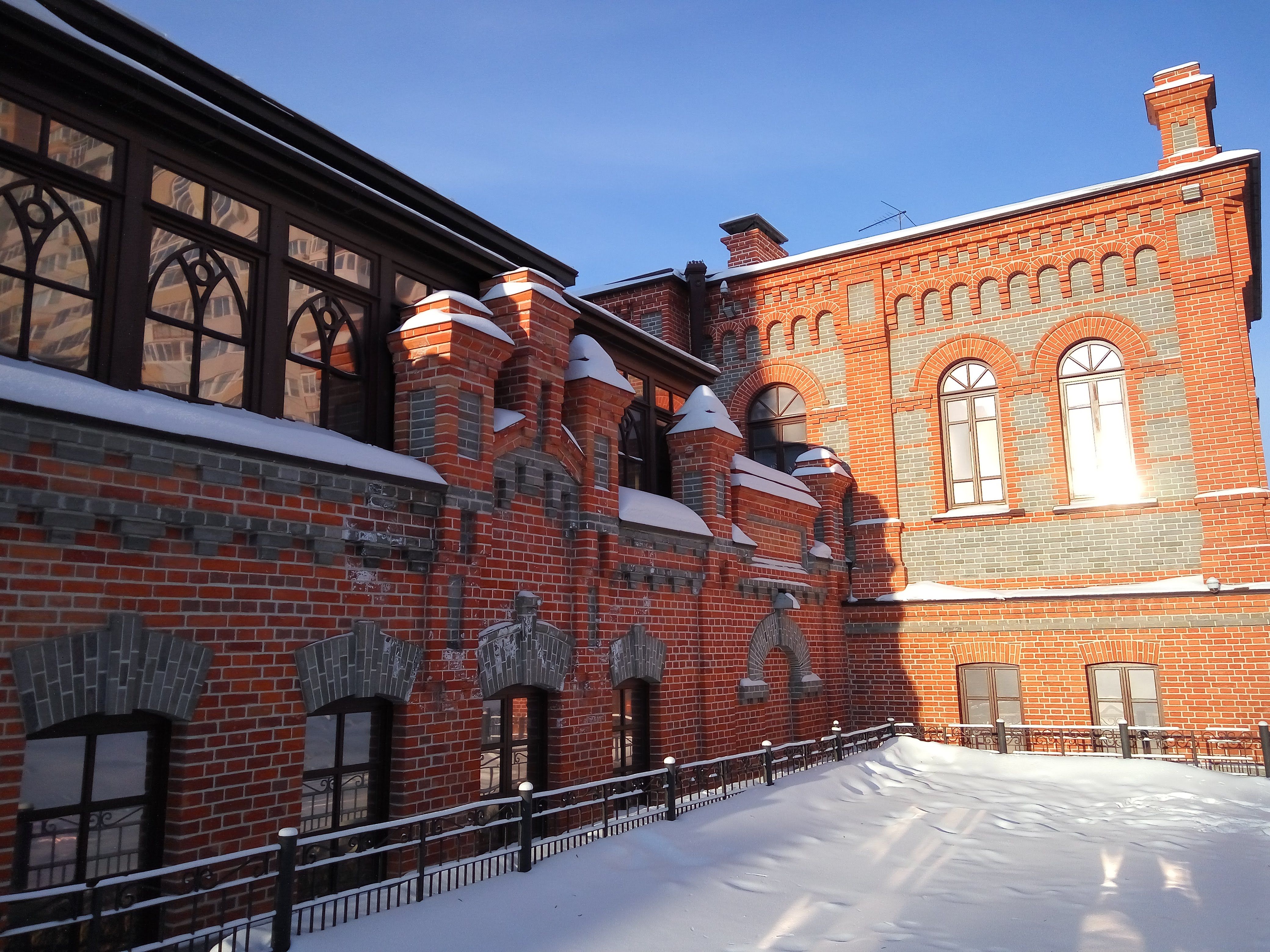
(In the photo there is a renovated office of Nikolai Tifontai)
Nikolai Ivanovich Tifontai , his real name Ji Fengtai,( 纪 凤台 in pinyin Jì Fèngtái), he was a Chinese merchant, during the Russo-Japanese War - one of the main supplyers of the Russian army.The Far East at the end of the XIX century attracted the attention of a considerable number of enterprising people who hoped to earn their wealth here. But even against their backdrop, the figure of the Chinese subject Tifontai, who settled in Khabarovsk in 1873, stood out prominently. Tifontai began his commercial activity with small trade, gradually he expanded sales, acquired real estate, developed production, thereby increasing his fortune. The success of the merchant was largely due to his personal qualities: in life and in business he was honest, open and reliable. However, in Russian historical and fiction, he often appears as a Chinese, Manchu, or Japanese spy. In Chinese historiography, Ji Fengtai appears as a "traitor" and "traitor" with "Chinese appearance and Russian heart". No doubt, the main reason for this attitude of the Chinese to Tifontai was the circumstances of the signing in 1886 of the Khabarovsk Protocol, which fixed the establishment of a stone border pillar with the letter "E".
( A little retreat - the building presented in the first photo is in the best condition from the whole complex of Tifontai, as it was bought back by one of the big bankers and well restored. Other buildings in worse condition.Find these building is not difficult - they are clearly visible from the junction of streets Kalinina and Sovietskaya)
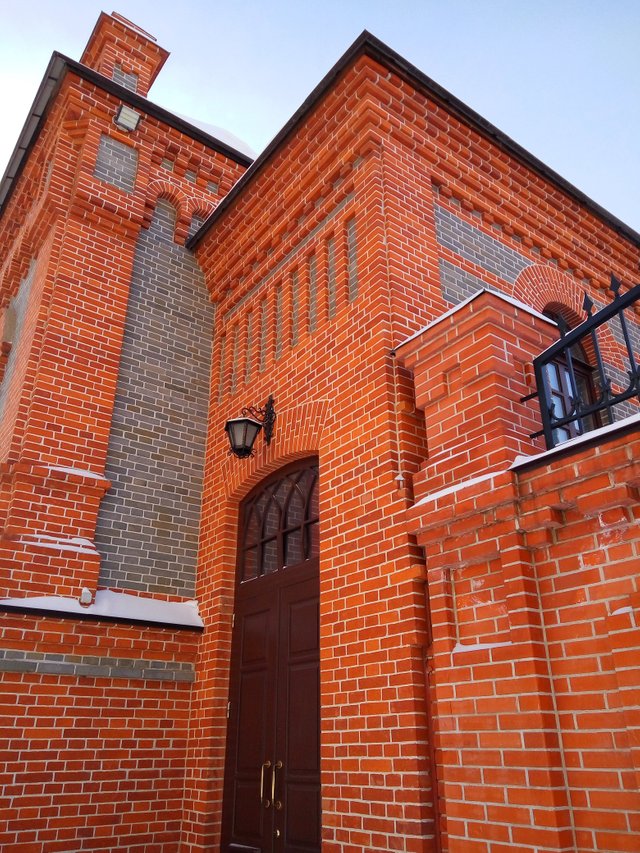
(One of the entrances to Nikolai Tifontai's main office)
Little is known about the early years of Tifontai's life. According to Chinese sources, Ji Fengtai was from Huangxian County, Shandong Province. In 1873, as an interpreter, he came to Russia with the first party of Chinese workers recruited by the Russian government in Shandong, who were drawn to the construction of ports and cities of the Far East. After a while he began to work as an interpreter in the administration of the Primorsky region and Khabarovsk.
One of the first results of his work in this field was the participation in the election of the Chinese foreman in Khabarovsk in the autumn of 1880. The general meeting of the Chinese city took place on November, 2. The public verdict read: "On November 1880, the second day, we, the undersigned Chinese subjects, the Chinese, former general assembly, in the Khabarovsk City Police Department elected from amongst themselves the Sergeant, who could guide us, monitor our behavior, do between us proceedings about the result of which is to inform the Khabarovsk police, bring to the attention of: Police about the evils of the Chinese, about Chinese arriving and leaving the city and in general about everything that will concern the Police"
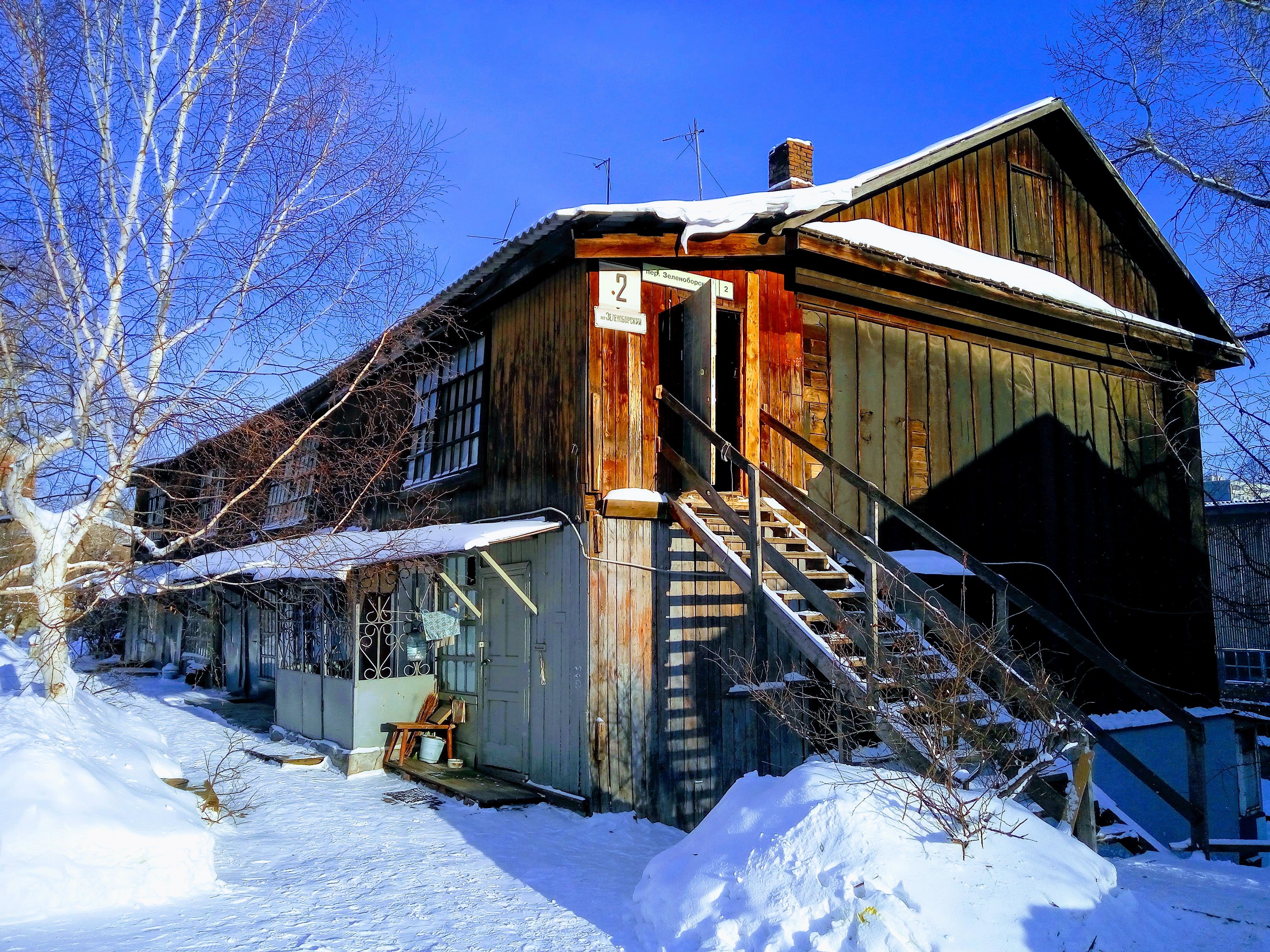
(in the depths of the neighboring block there is a preserved residential building. At the end of the 19th century, established for hired Chinese employees)
Unanimously, Ji Fengtai was elected as the foreman, who was obliged to obey all Chinese subjects. The sergeant-in-chief had to lead them, monitor their behavior, conduct proceedings between them, and bring all this information to the police.
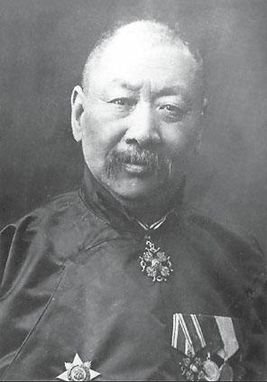
(Nikolai Tifontai)
From the mid-1880s, Tifontai tried to become a subject of Russia. In July 1885, Major-General Baranov received a petition in the name of the military governor of the Primorsky region to accept Russian citizenship, which was rejected, since Tifontai did not convert to Orthodoxy. In March 1891, the heir to the throne Nikolai Alexandrovich (future Nikolai II) arrived in Vladivostok. During the walk, he accidentally went into the workshop to Ji Fengtai and got acquainted with him. Nicholai asked him to help in choosing the furs. When Tifontai fulfilled his request, not knowing who Nikolai was, he offered him a bureaucratic position, to which the merchant refused. Then Nicholai awarded him the highest merchant title.Literally right after this incident, on July 20, 1891, Tiphontai wrote the second petition for his acceptance into Russian citizenship.
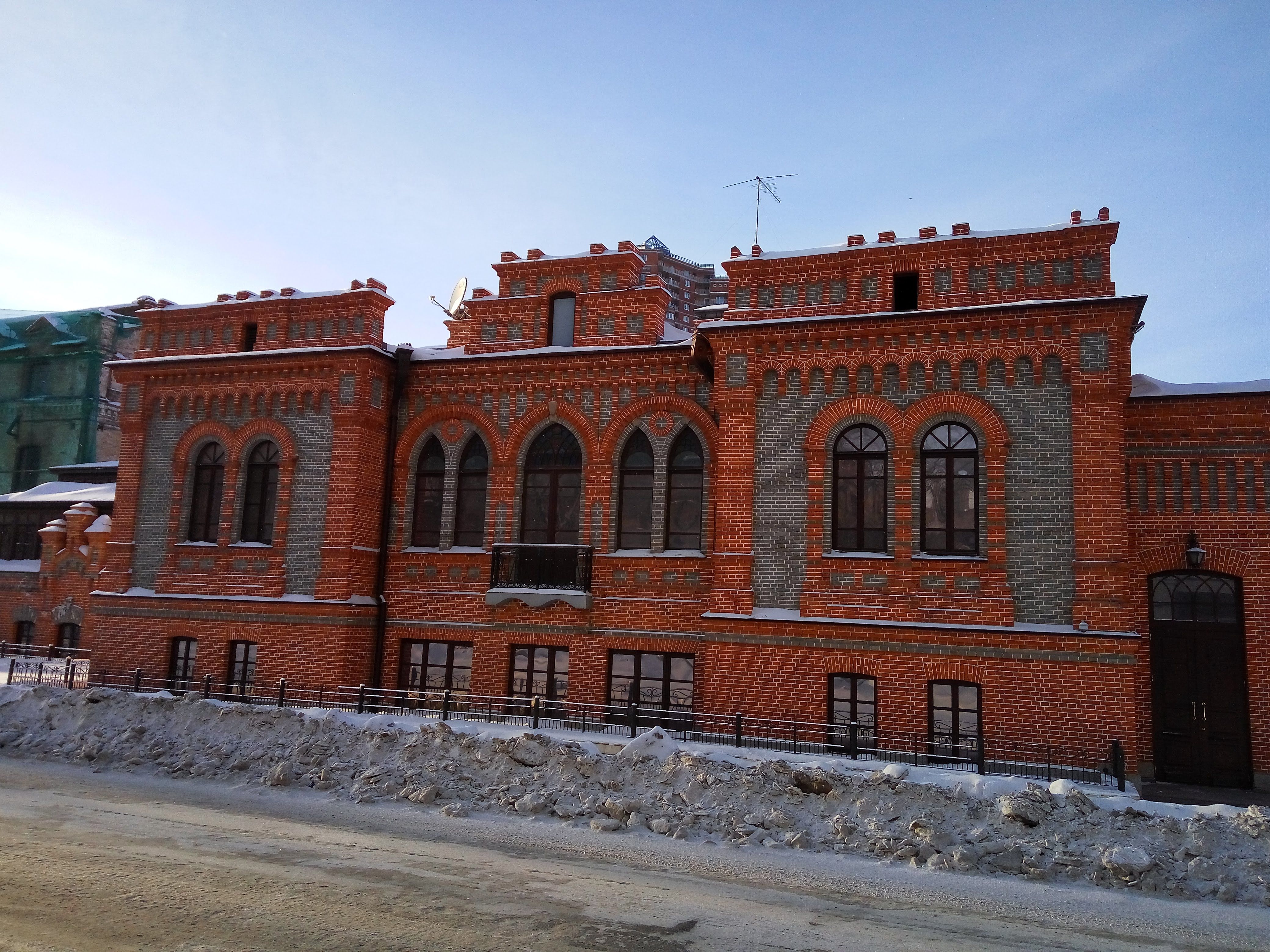
(General view of the main building of the office)
The petition was granted. Tiphontai was offered to be baptized and cut off a scythe, which according to the laws of the Chinese empire was the gravest crime. October 7, 1891, he turned to the Governor-General Baron Korf with a petition in which he requested permission not to cut his braid, but was refused. Having completed all the affairs with the Chinese, Tifontai on December 18, 1893 was reduced to Russian citizenship. In February 1895, Tifontai became a merchant of the 1st Guild. Being an enterprising merchant, he did much to establish commercial ties between the Russian Empire and Manchuria. In 1895, together with the Khabarovsk merchant Bogdanov, he equipped the Russian steamship "Telegraph', which went on a commercial lines along the Sungari river. Also Tifontai was known as a generous contributor to charitable and social needs. By the end of the XIX century, he had three medals, including one for his services to the department of the Orthodox faith. At the same time, Tifontai himself remained a Buddhist, wore a Chinese dress, but baptized his children according to the Orthodox rite and sent him to study in European Russia.
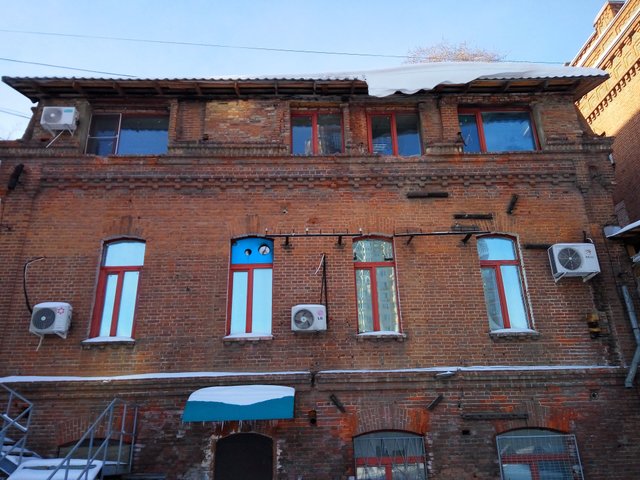
(The building of the former tobacco factory of the merchant Tifontai)
The enterprises of Tifontai were scattered all over the Far East. A considerable income was brought by steam roller mills built in Khabarovsk, Harbin, on the Kwantung Peninsula. Profitable were the macaroni and tobacco factories, a brewery, a power station, a foundry and a mechanical workshop, serving the actual shipping company. Two brickyards of Tifontai, with a total of fifty employees, produced up to 900,000 bricks per year. Tifontai had two quarries: Korfovskaya and Krasnorechenskaya in Khabarovsk. In Port Arthur he owned a distillery, a theater, a circus, taverns and restaurants. In total, he owned 50 stone houses.
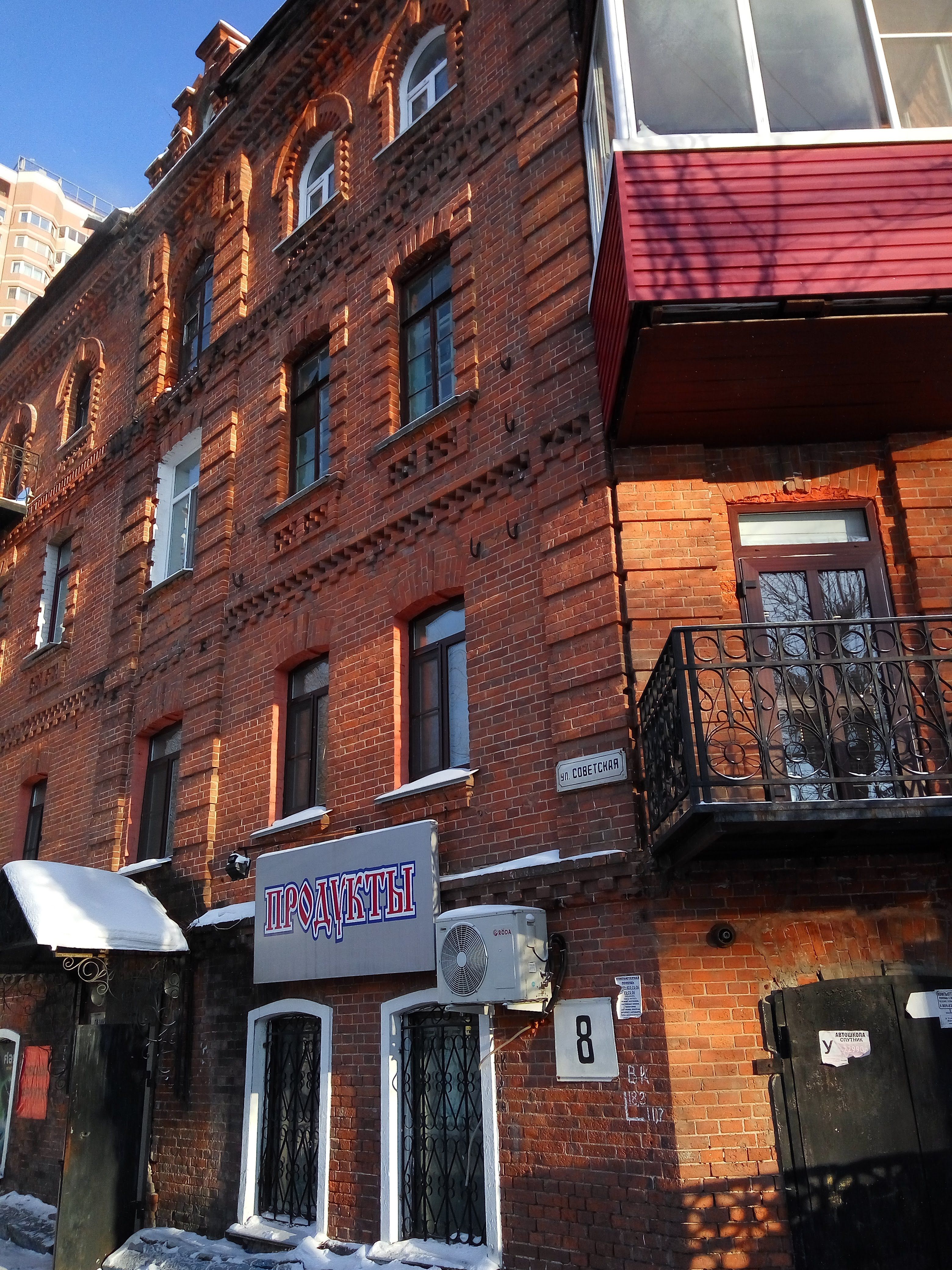
(The former home for the tenants of the trading house of Tifontai - now just an old residentional house)
Tifontaya's diverse business activities often aroused the concern of the Russian Far Eastern community, who saw in the expansion of his business the evidence of Sinification of the Russian Far East. So, in 1896 the correspondent of the newspaper "Vladivostok" wrote about his impressions of the trip on the steamship "Graf Putyatin" along the river Ussuri:
"... On all steamships of the Amur company, the Chinese keep the kitchen and buffet, they are rumored to be the front men of the all-powerful Khabarovsk Tifontai, who takes an honorable place everywhere among good-natured Russians, and Khabarovsk residents depend on him, because he alone delivers bread from China for food."
Large incomes enabled Tifontai to allocate considerable funds for public and charitable affairs. In Khabarovsk - for the construction of a shrine, the purchase of objects of Buddhist worship, the construction of a children's shelter, an extension of the reading room for the Nikolaev Public Library, a museum, the construction of a calf. In 1895, at the general annual meeting of the Khabarovsk department of the Russian Red Cross Society, in summarizing the collection of donations, the mug of the Assumption Cathedral was placed on the first place, and on the second - the mug of the Typhontay store. By the beginning of the twentieth century, Tifontai was awarded three Russian medals, including for services in the Orthodox faith department.
And here the question arises: did Tifontai himself accept Orthodoxy? The answer to it can be found in the report of N.I. Grodekov addressed to the Minister of the Interior: "Some Chinese, not wanting to change their religion and national clothes, educate their children in the spirit of the Christian faith. Tifontai, a Khabarovsk merchant, accepted into Russian citizenship, remained a Buddhist and wears a Chinese dress, but his son and his daughter are baptized according to the Orthodox rite and are brought up in European Russia. " It turns out that Tifantaya was made an exception and he was accepted into Russian citizenship without transition to Orthodoxy "
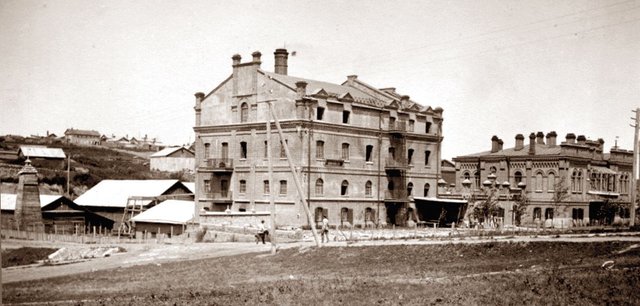
(In the photo of the beginning of the 20th century, a steam mill and the main office of a merchant Tifontai are imprinted)
In the Russo-Japanese War of 1904-1905 Tifontai was engaged in supplying Russian troops. There were no such products or products needed by Russian troops that Tifontai could not get. At his own expense, he equipped an equestrian partisan detachment, consisting of 500 people. That's what Tifontai wrote to Major General VA. Oranovskiy: "... for the arming of the detachment, I ask that I give 400 pieces of rifles with the necessary number of bullets under my personal responsibility ... I, Tifontai, are giving the people, their maintenance, and horses, for the time being from their personal funds for three months ..." Merchant's proposal was truly unique.
The Japanese general once said: "To seize Tifontai is like winning a battle." The capture of the merchant by the Japanese command was remunerated. According to contemporaries, at that time Tifontai never slept two consecutive nights in one place.
At the same time, during the war, Tifontai's firm suffered enormous material losses. As one author put it, with the Russians Tifontai created a huge fortune, with them, and went bankrupt ... Yesterday's millionaire needed everything and found no support anywhere. V. Nemirovich-Danchenko noted: "We paid fabulous losses to others and were not at all embarrassed to drive away Tifontai, who was in love with Russia ..." After the war, Tifontai tried to compensate his losses, wrote to various instances, but to no avail.
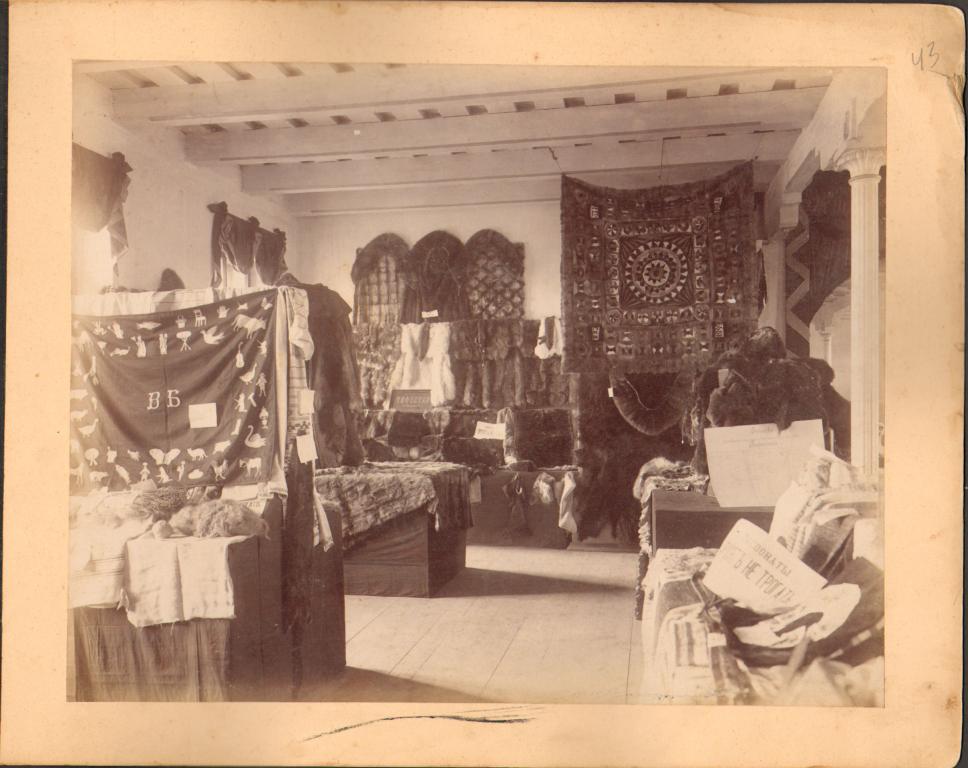
(pavilion of Tifontai firm's products at the exhibition in Khabarovsk, 1899)
In 1907 the merchant had numerous problems and conflicts with creditors and contractors, with whom he worked during the war. On their initiative in Khabarovsk, the "Administration for the affairs of the trade house Tifontai and Co" was created, which independently appealed to the government for assistance. According to the position of the Council of Ministers approved on August 12, 1908, Tifontai was given a "loan-for-gratification from the treasury" in the amount of 500 000 rubles.
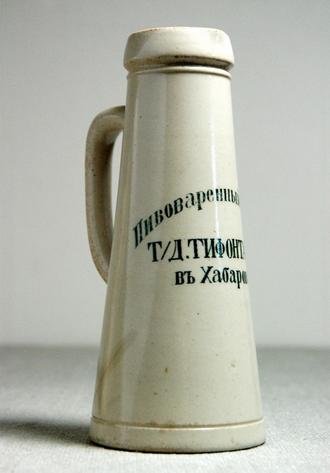
( Clay mug of the Tifontai's brewery in Khabarovsk)
When, on receipt of a government loan, Tifontai asked the administration to give him information on how things are going on, the administration resolutely refused to do so. The owner of the firm was not provided with any documents.Nikolai Ivanovich Tifontai had no choice but to go to St. Petersburg, where he hoped to obtain compensation for his losses. But neither letters, nor appeals to the highest authorities, nor the support of the Governor-General of Priamurye P.F. Unterberger. Nikolai Ivanovich could not survive what had happened. He died in St. Petersburg in 1910. The newspaper Priamurskie Vedomosti reported the death of the merchant. He ordered his body to be taken to China. From the Nikolayevsky railway station of St. Petersburg, the Russian subject Nikolai Tifontai went to his last trip to Harbin.
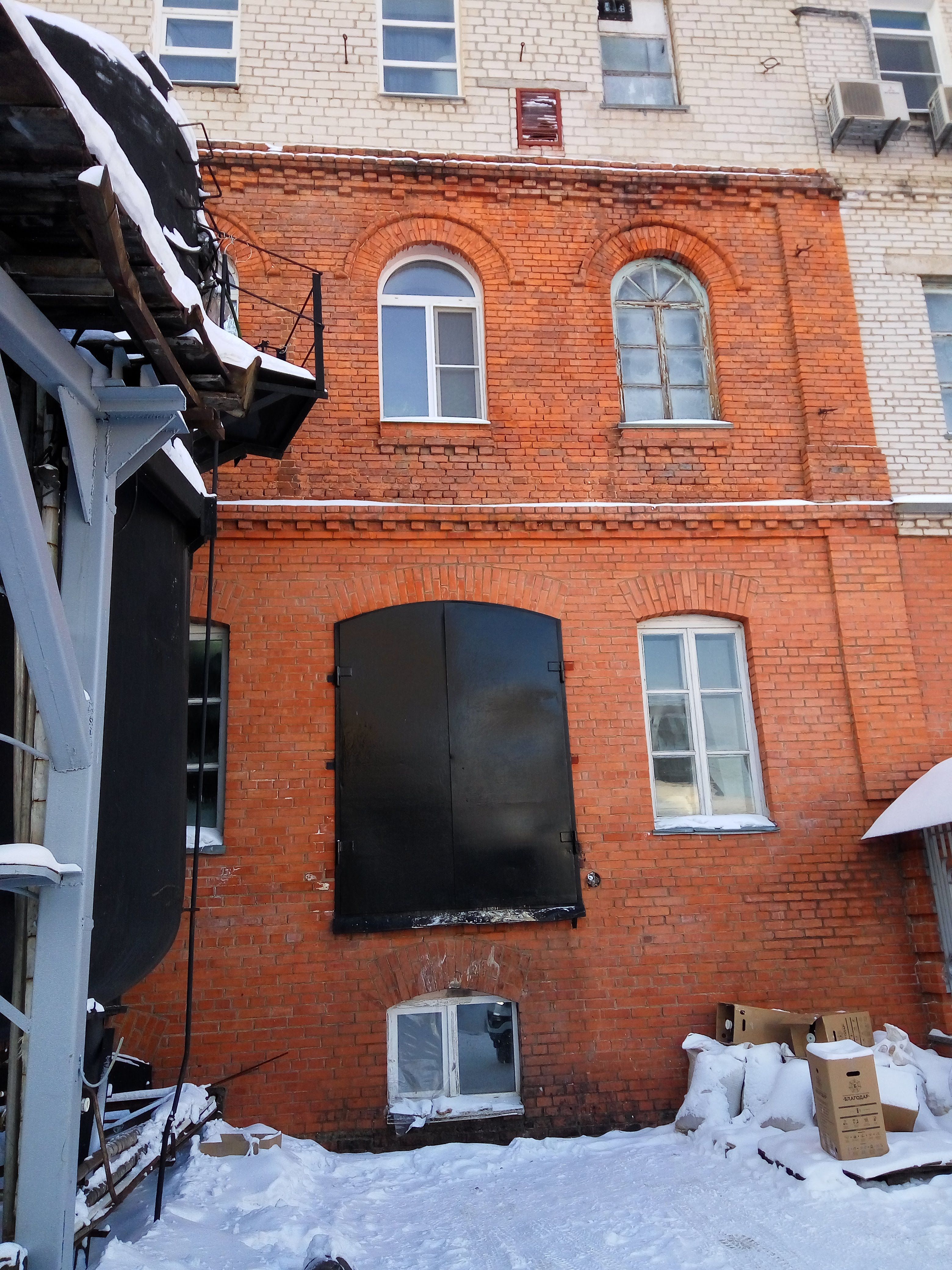
(a building, once a former Tifontai's brewery)
Then, more than a hundred years ago, around the enterprises of Tifontai in Khabarovsk, the Chinatown expanded, which lasted until the early 1930s of the last century. The remnants of the once mighty merchant empire diverged into creditors, well, then it was already a revolutionary year 1917 and a completely another story ..
Мне знакомы эти исторические места. Здорово!
Писал, старался)
This is an interesting piece of history and I guess something his mother land would prefer not to mention.
Thank you, i think so
@fareast-history,are you walking around))?
World of Photography Beta V1.0
>Learn more here<
Thank you for participating in #streetphotography, the weekly selection will be released on Saturday.
You have earned 5.50 XP for sharing your photo!
Daily photos: 1/2
Daily comments: 0/5
Multiplier: 1.10
Server time: 01:02:29
Total XP: 126.40/200.00
Total Photos: 23
Total comments: 5
Total contest wins: 0
Follow: @photocontests
Join the Discord channel: click!
Play and win SBD: @fairlotto
Learn how to program Steem-Python applications: @steempytutorials
Developed and sponsored by: @juliank
As a follower of @followforupvotes this post has been randomly selected and upvoted! Enjoy your upvote and have a great day!
You got a 1.00% upvote from @upmewhale courtesy of @fareast-history!
This post has received a 0.64% upvote from thanks to: @fareast-history.
thanks to: @fareast-history.
For more information, click here!!!!
Send minimum 0.100 SBD to bid for votes.
Do you know, you can also earn daily passive income simply by delegating your Steem Power to @minnowhelper by clicking following links: 10SP, 100SP, 500SP, 1000SP or Another amount
This post has received a 1.96 % upvote from @aksdwi thanks to: @fareast-history.
You got a 2.55% upvote from @upyou courtesy of @fareast-history!
You got a 0.73% upvote from @postpromoter courtesy of @fareast-history! Want to promote your posts too? Check out the Steem Bot Tracker website for more info. If you would like to support development of @postpromoter and the bot tracker please vote for @yabapmatt for witness!